“This country is inhabited by saints, sinners, and Beechers”
The Famous (and Infamous) Beecher Family
The appliqued “Beecher” embroidery along the chair’s back signals a likely connection to one of America’s most influential families in the 1800s. Beginning with the formidable family patriarch Lyman Beecher (1775–1863), members of the Beecher family became influential public figures and made vital contributions to the evolution of American religion and reform movements, including the temperance movement, and abolition, and women’s suffrage.
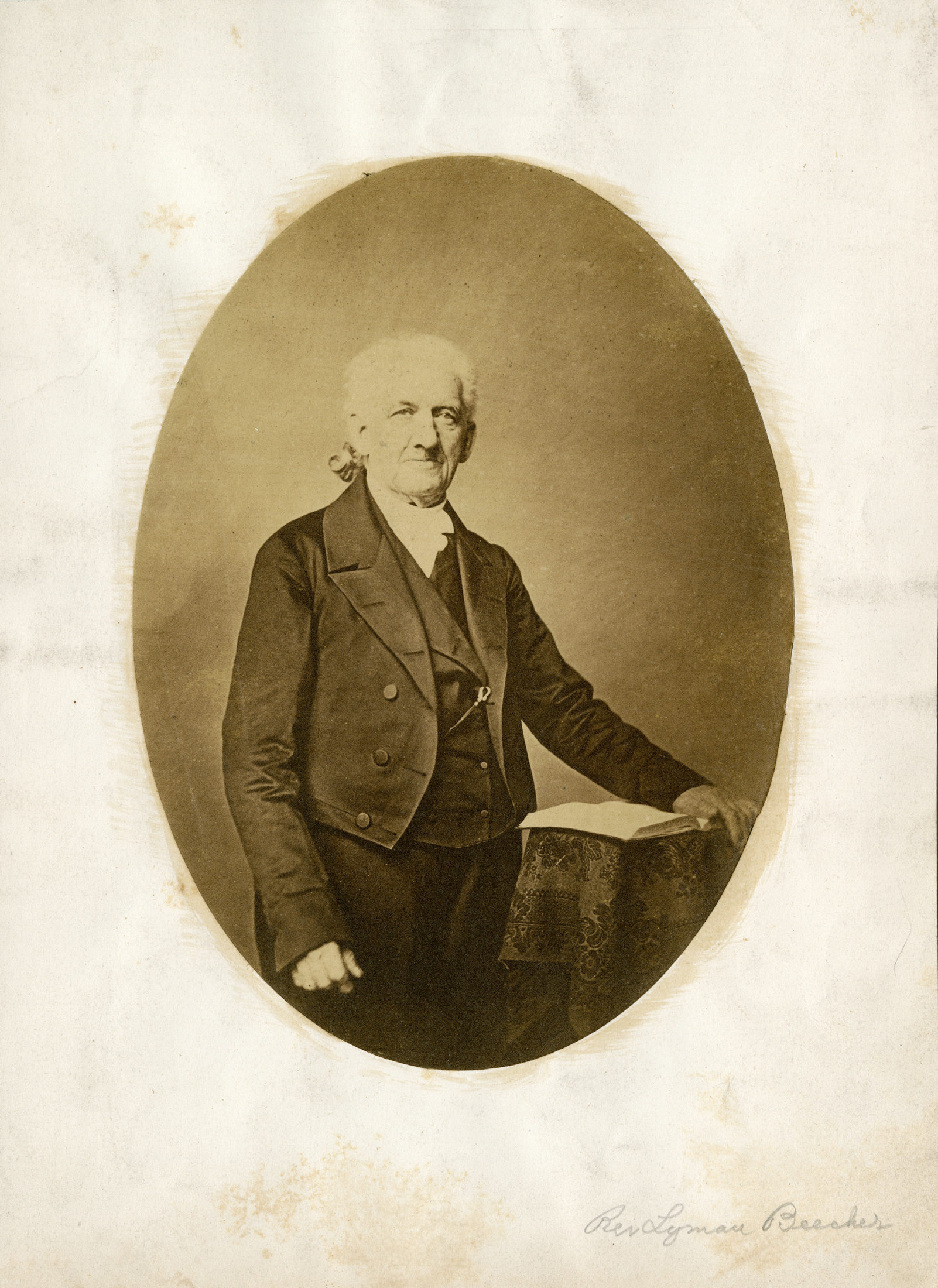
Lyman Beecher, undated
Plymouth Church of the Pilgrims and Henry Ward Beecher collection (ARC.212)
Brooklyn Historical Society
Born in New Haven, Connecticut, in 1775, Lyman Beecher graduated from Yale College and became an ordained Presbyterian minister in 1799. In addition to preaching to congregations in Long Island, Connecticut, Massachusetts, and Ohio, Beecher devoted himself to advocating social reform. He cofounded the American Temperance Society in 1826, and was also a critic of slavery.
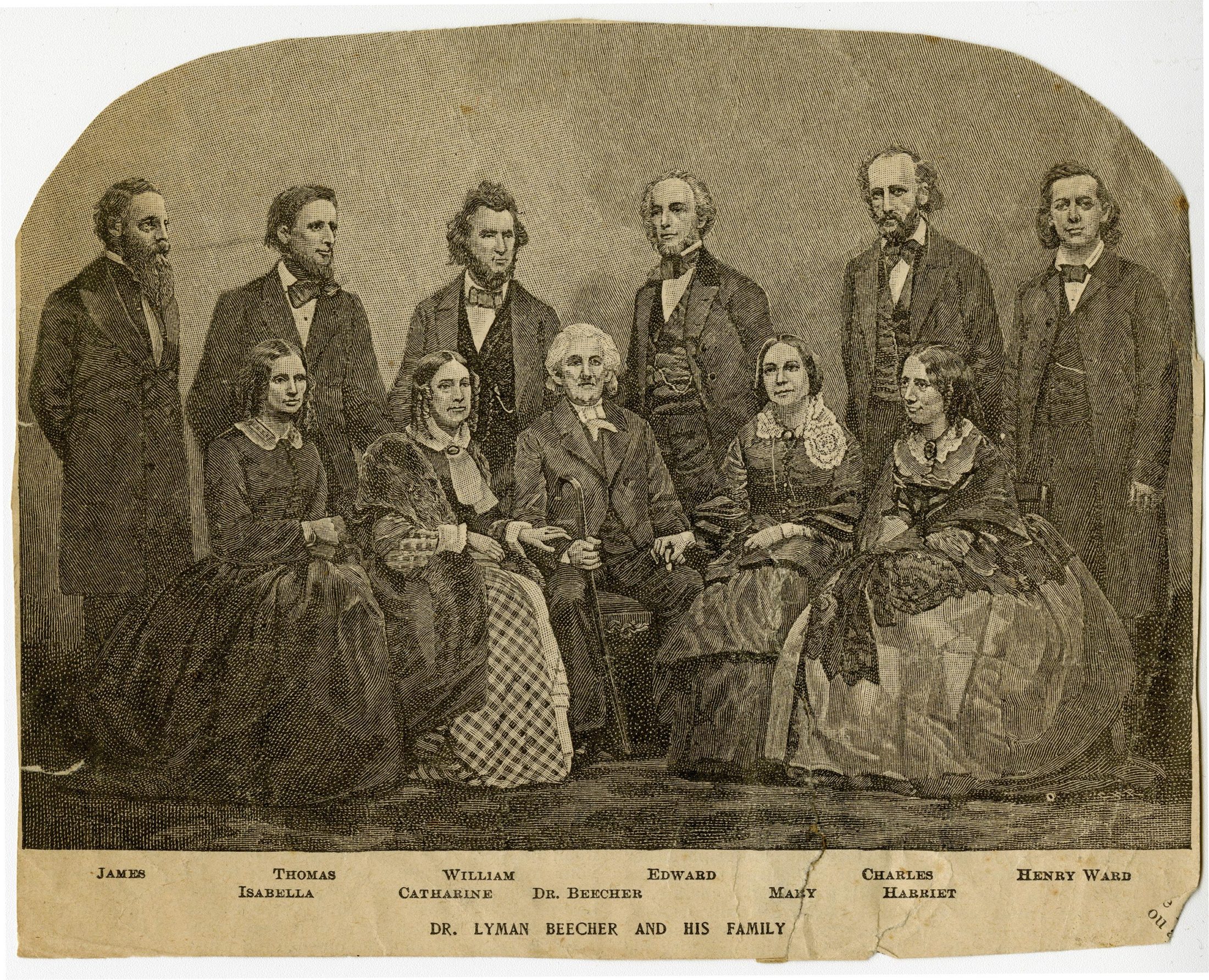
“Dr. Lyman Beecher and His Family”
Engraved reproduction after 1859 daguerreotype by Matthew Brady
Plymouth Church of the Pilgrims and Henry Ward Beecher collection (ARC.212)
Brooklyn Historical Society
Beecher’s greater legacy, though, was undoubtedly his family. Ten of his thirteen children lived to adulthood and more than half went on to live very public lives. In 1863, the same year Lyman Beecher died, fellow minister Leonard Bacon quipped, “This country is inhabited by saints, sinners, and Beechers.” Members of the family, particularly Henry Ward, became so well known by the American public that “Beecher souvenirs” were common in the late nineteenth century.
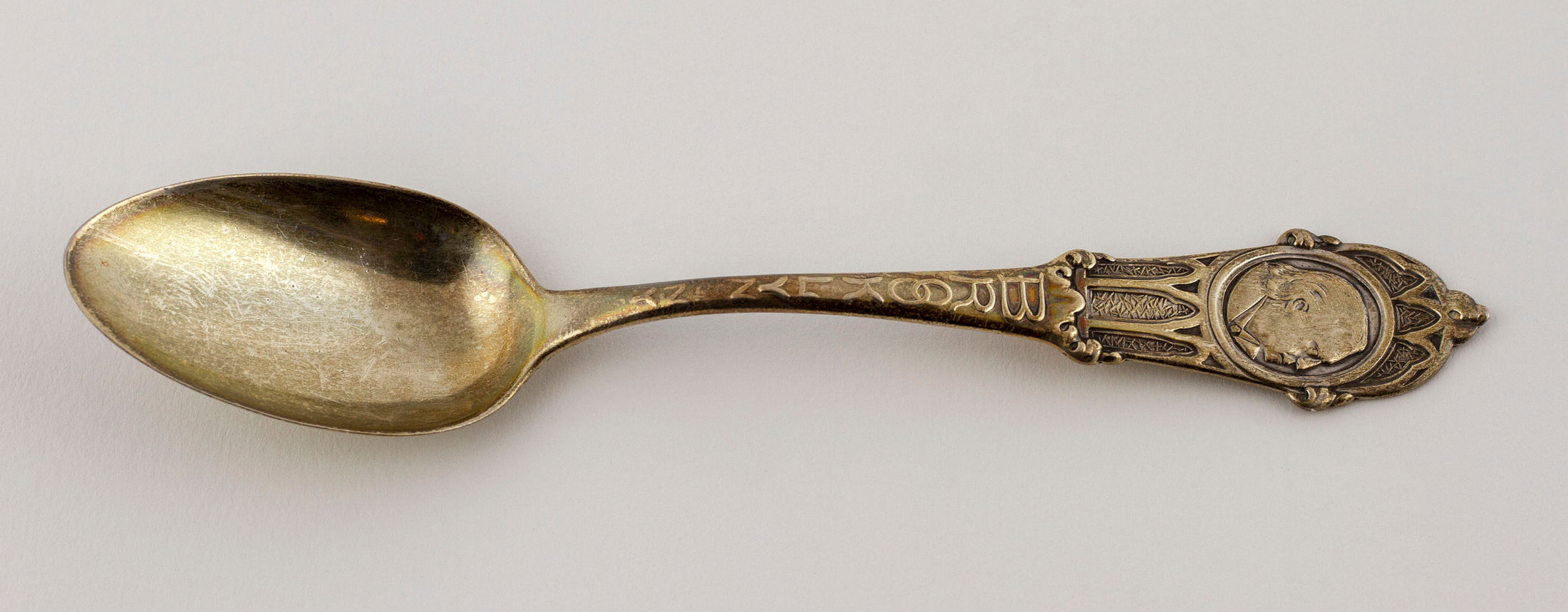
Henry Ward Beecher/Brooklyn souvenir spoon, 1866-1905
M1988.64.1
Brooklyn Historical Society
All seven of Lyman’s sons—William, Edward, George, Henry Ward, Charles, Thomas, and James—followed him into the ministry and made their own marks as authors, speakers, educators, and military officers.
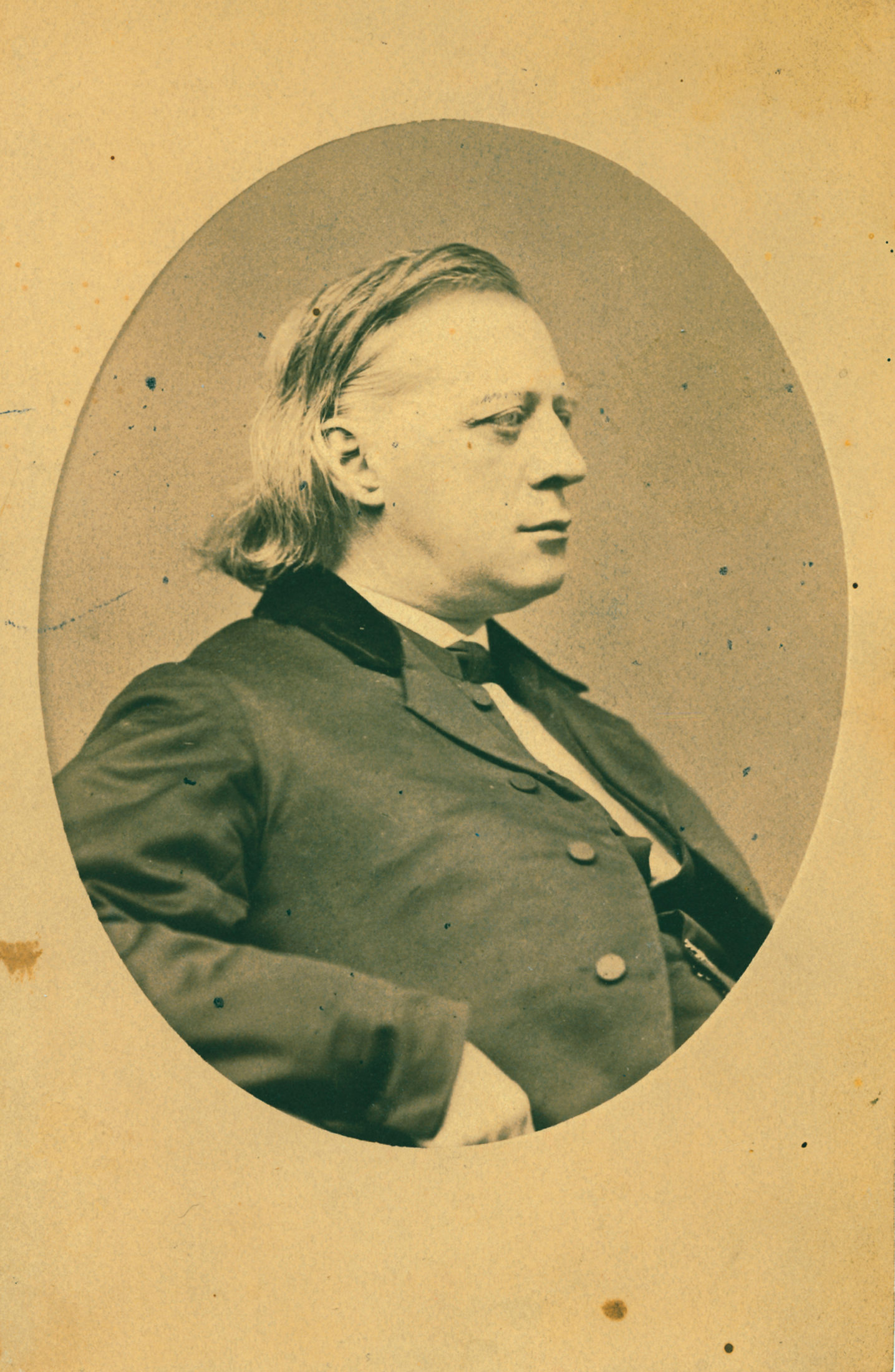
Henry Ward Beecher, circa 1870–80
Plymouth Church of the Pilgrims and Henry Ward Beecher collection (ARC.212)
Brooklyn Historical Society
The women of the Beecher family were arguably even more impressive than the men. The eldest, Catharine, became a pioneer voice for women’s education. Isabella Beecher Hooker became a key activist in the women’s suffrage movement, alongside Elizabeth Cady Stanton and Susan B. Anthony. And Harriet Beecher Stowe’s fame rivaled that of both her father and younger brother, Henry Ward. In 1852, her novel Uncle Tom’s Cabin hit bookshelves, laying bare the horrors of slavery in America. An instant success, it nearly surpassed the Bible as the best-selling book of the 1800s.
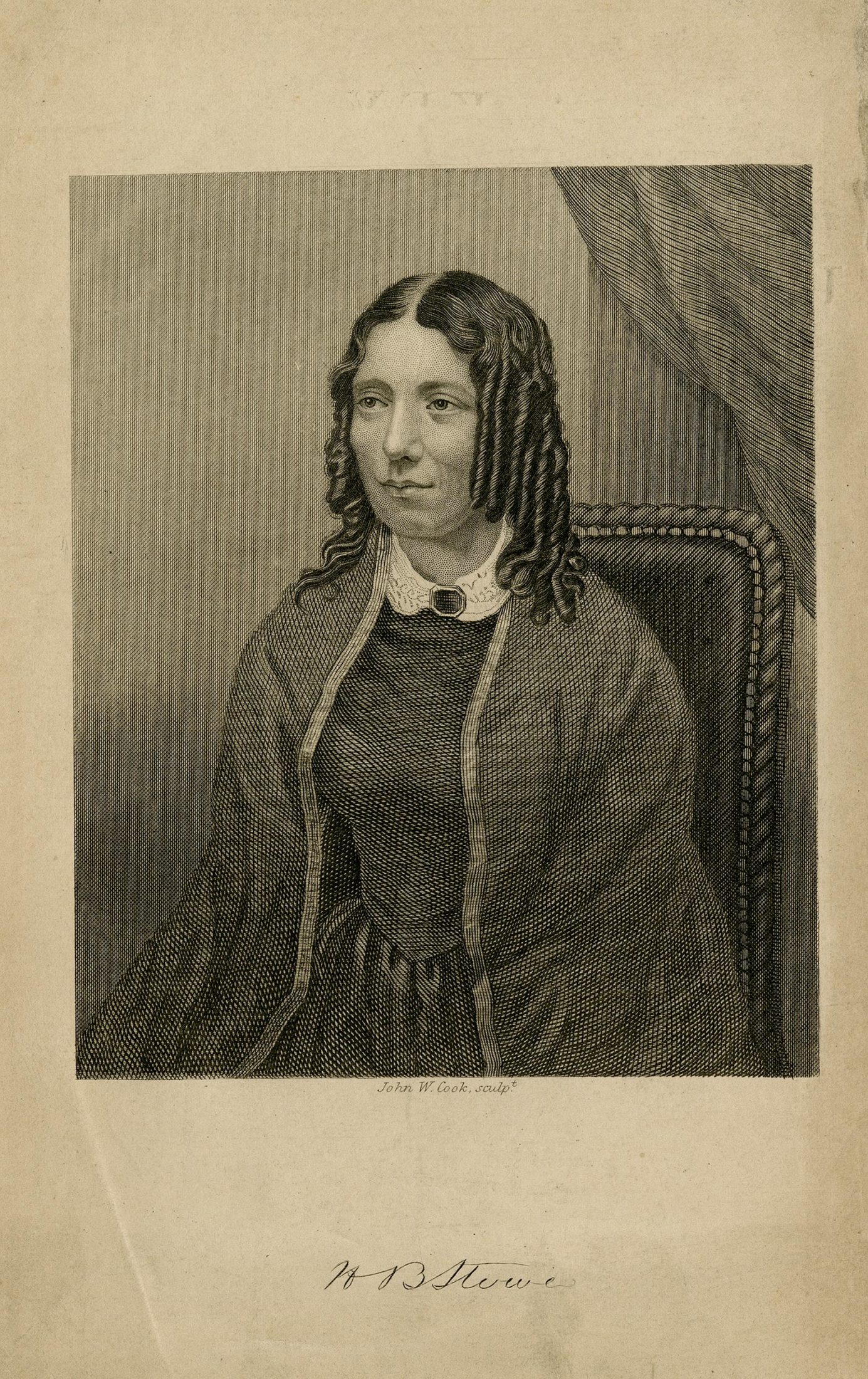
Frontispiece engraving of Harriet Beecher Stowe from Uncle Tom’s Cabin, circa 1853
Plymouth Church of the Pilgrims and Henry Ward Beecher collection (ARC.212)
Brooklyn Historical Society